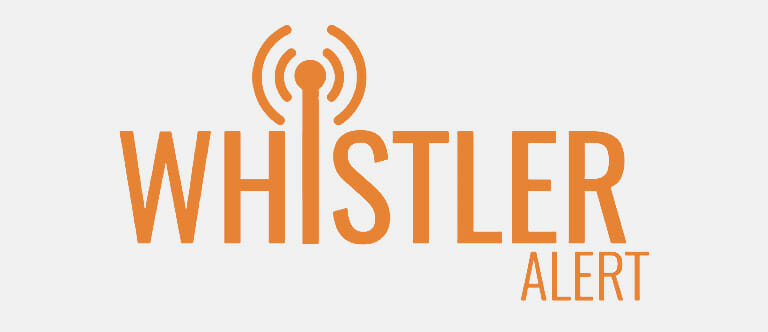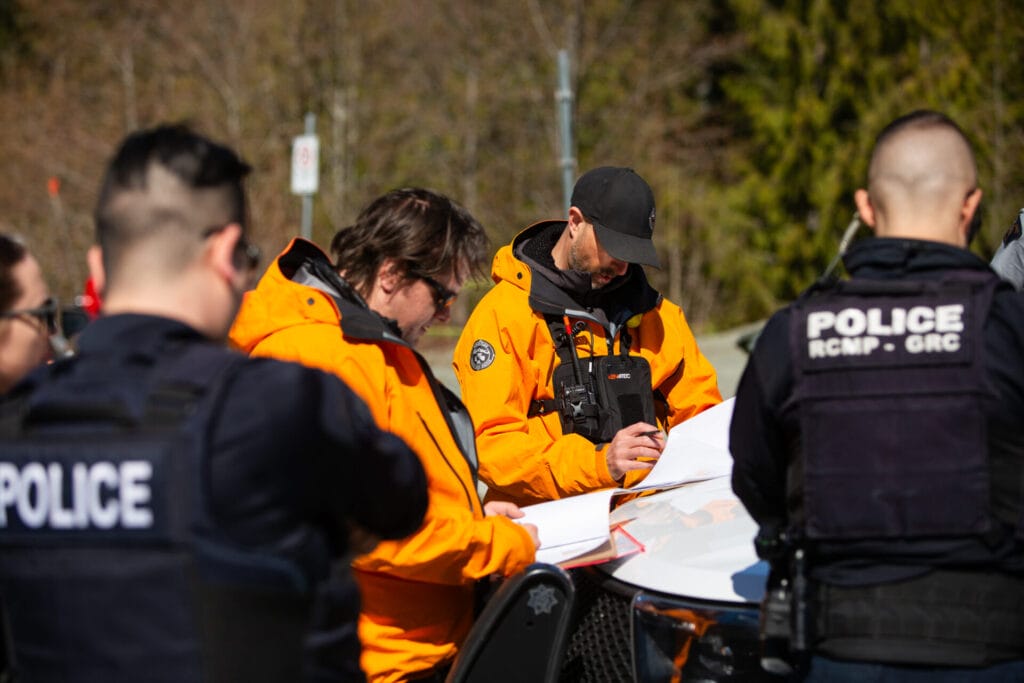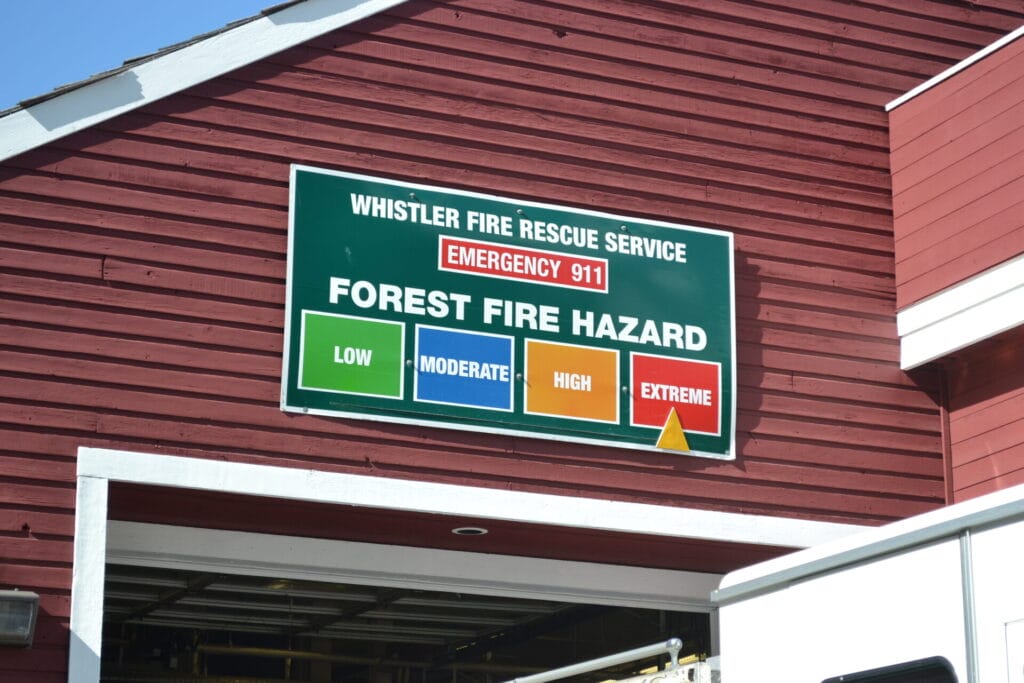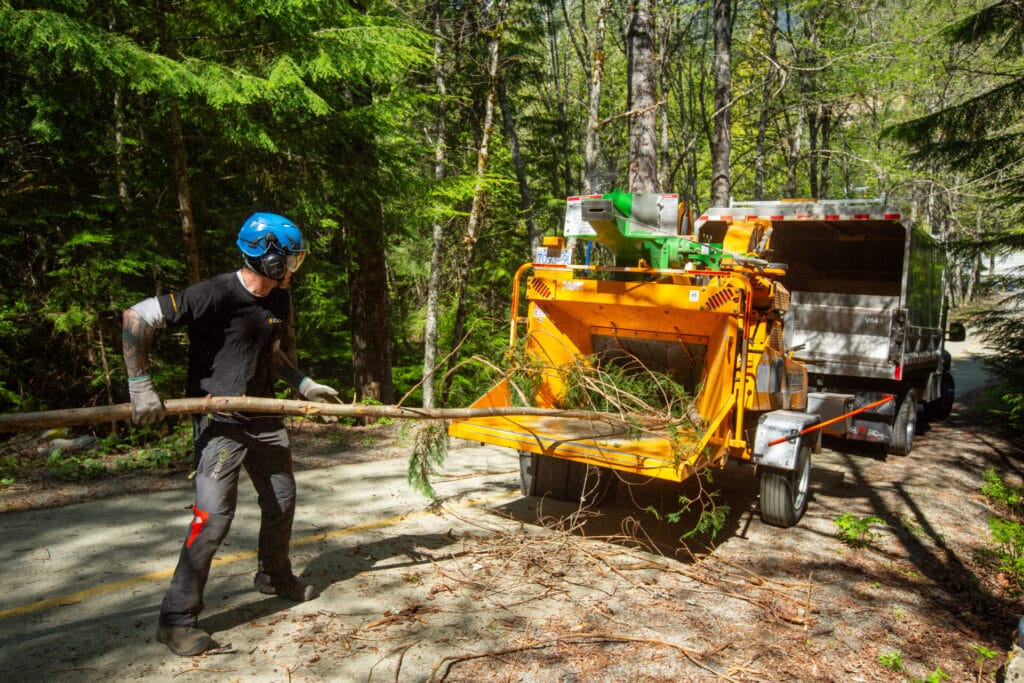The 2025 wildfire season has started already. The time to prepare for potential wildfire emergencies in Whistler is now. Being proactive can save homes and lives. Here are some ways you can prepare yourself and your property.

Sign up: Whistler Alert
Whistler Alert is our official emergency notification system, used to communicate with residents and visitors during emergencies.
Whistler Alert is available and important for both residents and visitors.
- Residents will be asked to provide their contact information and to select the Whistler neighbourhoods they wish to receive alerts for.
- Visitors will be asked for their contact number and to input the date they plan to leave Whistler. Visitors will no longer receive alerts after their intended departure date.
Signing up means you’ll receive critical information via text, phone, and email in situations that may pose a risk to your health, safety or property.
Be ready: gas + grab-and-go
When an emergency hits, there won’t be time to stop for gas, food and water, emergency supplies, etc. It’s important to be ready with enough gas in your tank (always keep it at minimum half full), and a grab-and-go emergency bag that’s packed and ready by your door, in case you need to leave right away. It’s a good idea to make grab-and-go bags for your home, workplace and vehicle. To find out more about taking the steps to be prepared, check out our Personal Preparedness info, as well as Prepared BC’s Emergency Ready plans and tips.

Make: emergency plan
Where will you go if you have to evacuate? If you don’t have a car, who will you carpool with? Do you have extra seats in your car to help others evacuate? These are some questions you should be asking as part of your emergency plan. A good emergency plan will include things like an emergency phone list with at least two out-of-area contacts, a designated meeting spot, an evacuation plan, etc. To find out more about taking the steps to be prepared, check out Prepared BC’s Emergency Ready plans and tips.

Pay attention: be aware of fire danger ratings, campfire ban and regulations
Do you know the types of barbecues you’re allowed to use in Whistler’s parks? Do you know how construction activities are affected by the fire danger rating shifts? These are all important things to stay on top of to reduce the fire risk in Whistler.
It is important to know the fire danger rating so you can assess the risk. We also share it weekly in our newsletter.
A campfire ban has been in effect in Whistler since June 12, 2025 and will stay in place until September 15, 2025. Bonfires or open-air fires are not permitted in public areas or Whistler’s parks at any time.
Only propane barbecues are allowed in Whistler parks, providing they are being used safely and in accordance with the manufacturer’s recommendations. Briquette barbecues are not permitted.
High temperatures have a ripple effect on certain industries as well. Those conducting construction or tree services (including landscaping) within 10 metres of the forest and vegetation require a Wildfire Exemption Permit from the Fire Department to conduct high risk activities during high and extreme fire danger ratings.
Stay in the loop and get all the details on fire info in Whistler on whistler.ca.

FireSmart: assess your property
FireSmart is a program available in Whistler to help home and property owners understand wildfire exposure, while empowering them to reduce it. FireSmart work helps reduce the spread of wildfire and makes properties more defendable. If you need more convincing, read this personal account from the 2023 Gunn Lake fire.
Sign up for a free FireSmart assessment with a Wildfire Mitigation Specialist and learn how to organize your neighbourhood to FireSmart their homes.
Looking for more information about what Whistler is doing to prepare for wildfires? Here’s some coverage from Global BC last year about the Whistler Fire Rescue Service Wildfire Defence Plan.
Check out our podcast on preparing for a wildfire emergency, featuring Whistler Fire Chief Thomas Doherty and Mayor Jack Crompton.
And for more information about general wildfire preparedness, check out Emergency Management BC’s Wildfire Preparedness Guide (PDF).